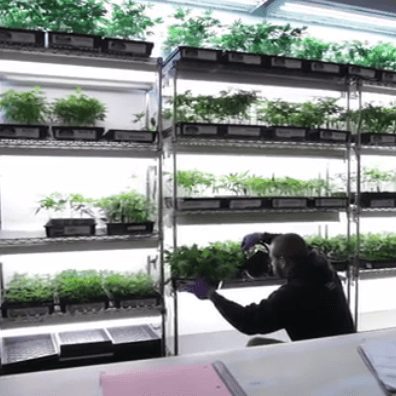Republished with permission from The Weed Blog; Read the original article HERE.
In the next several months, the industry is expecting to welcome two additional recreational cannabis markets, both of which have had operating medicinal cannabis programs for a number of years. Nevada is expected to launch a temporary licensing program to officially allow recreational sales starting July 1, 2017. Meanwhile, the very first medical cannabis program in the United States, California, is expected to begin recreational sales early 2018. Neither of these states will be the first to make the switch from medical to recreational, but they do have the benefit of learning from the multiple states who have already made the transition. As a business owner, this isn’t as simple as, “Hey, I have a rec license, so now I can start selling rec.” You have to consider new data points that are required for compliance, new regulations in place that require you to alter your establishment premises, then figure out how to completely redo your workflows to stay compliant with the new structure. Let’s look at the history of this process and some of the challenges licensees have faced in making the switch.
Colorado was the first state to allow both medical and recreational sales, and they opened the door in a way that made it easy for licensees. All data feeds into a single data capture system (Metrc), and on top of that, they’re allowed to operate both medical and recreational sales under the same roof – a provision that’s uncommon in other states.
The second state to make the switch was Washington. Washington followed Colorado’s lead and rolled the medical system into the existing recreational to feed into a single, standardized reporting system with built in controls (BioTrackTHC). Businesses have to classify as either medical or recreational, but it doesn’t matter which side you’re on, the same level of data reporting is required. So for a medical licensee to make the transition to recreational, the process is effectively identical from a workflow perspective.
Next came Oregon, who made the transition from medical to recreational in a very similar approach to what Nevada is about to use. The state’s medical program was operated by the OHA, who enacted laws to allow medical licenses to start early retail sales. This effectively gave the medical dispensaries the ability to sell all inventory as either medical or recreational based on the sale type. While these businesses got a head start on the recreational market share (huge benefit), they became entrenched in their daily workflows and came to rely on them. So when these licenses had to officially transition to recreational, which would be operated by the OLCC, they had to shift their workflows to meet the needs of a new regulatory system, which can often include reclassifying your entire inventory. They may have had the advantage of a head start, but in turn they had to completely change their business operation when the transition became finalized. All of this means changes in operational costs in the short term, so the financial basis that the business has come to rely on gets shaken.
States Making the Medical To Recreational Switch Soon:
With Nevada now accepting applications for temporary recreational sales to start in just a month, licensees need to prepare themselves for when the temporary sales period is over, and for when it formally begins. It could mean changes in your existing reporting structures, your workflows, and operating costs. A flexible business solution will allow you to change your workflows easily and maintain required data reporting.
As for California, the state is expected to handle both recreational and medical sales simultaneously in the CAT (Cannabis Activity Tracking) Solution, as in, they’ll be reported into one system. California is still accepting public feedback on their proposed regulations, so don’t delay on submitting feedback, be part of shaping history!







